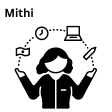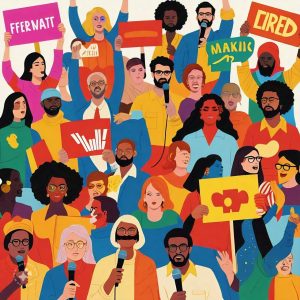Introduction
Freedom of speech and press are cornerstones of any functioning democracy. These rights give individuals the ability to express their ideas, criticize their government, and promote dialogue on important societal issues. At the heart of democratic society, they provide a platform for open exchange, foster innovation, and hold those in power accountable.
However, while these freedoms are essential, they are also subject to limitations and face challenges in modern times. Understanding their importance, historical development, and the ongoing struggle to protect these rights is crucial to appreciating their role in shaping the world today.

The Historical Foundation of Freedom of Speech and Press
The right to free speech and the press is deeply rooted in history, emerging from key events and ideas that shaped modern democratic thought. Ancient Greece, where philosophers like Socrates advocated for open discussion, is often cited as one of the earliest examples of this right in action.
In the Age of Enlightenment, thinkers such as John Locke and Voltaire championed freedom of expression as essential for personal and societal development. The printing press, invented by Johannes Gutenberg in the 15th century, revolutionized the spread of information and ideas, challenging the control of the church and monarchy over what could be published.
The First Amendment of the U.S. Constitution, adopted in 1791, is one of the most influential examples of codifying these freedoms. It guarantees the rights to free speech, a free press, and peaceful assembly, setting a global precedent.
Freedom of speech and the press are vital for a number of reasons. They empower individuals to express themselves without fear of retribution, whether through spoken words, written articles, or artistic expression. This ability to speak freely contributes to the betterment of society by fostering creativity, debate, and innovation.
A free press acts as a watchdog for democracy, holding governments accountable and ensuring transparency. Journalists investigate corruption, report on issues affecting citizens, and provide information essential for making informed decisions.
These freedoms also allow marginalized voices to be heard, driving social justice movements and advocating for change. From the Civil Rights Movement to gender equality campaigns, the right to speak freely has been critical in progressing these causes.
Legal Limits and Challenges
Despite its importance, freedom of speech and the press is not without limitations. Most democratic nations impose restrictions to prevent harm, such as laws against defamation, hate speech, and incitement to violence. The challenge lies in balancing these necessary restrictions with maintaining the spirit of free expression.
In recent years, the rise of digital platforms has created new challenges for these freedoms. While the internet has given everyone a platform to speak, it has also facilitated the spread of misinformation, hate speech, and conspiracy theories. Governments worldwide are grappling with how to regulate online content without infringing on the rights of individuals to speak their minds.
Authoritarian regimes continue to pose the greatest threat to press freedom. In countries like North Korea, China, and Russia, journalists face censorship, imprisonment, and even death for reporting on government corruption or human rights abuses. According to Reporters Without Borders, only 14% of the world’s population enjoys a free press, highlighting the urgent need to protect these rights globally.
The Role of Technology in Free Speech
The digital age has transformed how people exercise their right to free speech. Social media platforms like Twitter, Facebook, and YouTube have given billions of people the ability to share their thoughts instantly with a global audience. While this has democratized communication, it has also introduced new challenges, including the spread of fake news, cyberbullying, and mass surveillance.
The line between free speech and harmful content is often blurred, leading to debates about the role of tech companies in moderating content. Platforms face criticism for both allowing harmful content and censoring legitimate speech. This balance between ensuring a free, open internet and maintaining a safe, responsible online space remains a key issue for the future of free speech.
Press Freedom in the Age of Authoritarianism
Press freedom is under siege in many parts of the world. In authoritarian countries, independent journalism is often viewed as a threat to those in power. Governments in places like Belarus, Iran, and Venezuela have cracked down on journalists, shuttering media outlets and silencing dissent.
In these regions, the state tightly controls information, often spreading propaganda to maintain power. Journalists who attempt to report the truth face imprisonment or worse. This undermining of press freedom makes it difficult for citizens to access reliable information, leading to a misinformed public and weakened democracy.
However, even in democracies, press freedom is not guaranteed. In countries such as the U.S. and India, journalists have faced intimidation, legal threats, and harassment for exposing corruption and government misconduct. Protecting journalists’ rights and ensuring their safety is crucial for maintaining a free and open society.

The Future of Freedom of Speech and Press
The battle for free speech and press will likely intensify in the coming years. As technology evolves and governments attempt to balance security with liberty, the boundaries of free expression will be tested. Ensuring these freedoms for future generations will require constant vigilance, advocacy, and a commitment to the principles of democracy.
Education will also play a key role in preserving these rights. Citizens must understand not only their rights to free speech and a free press but also the responsibilities that come with them. Teaching media literacy, critical thinking, and the ethics of speech are essential in creating a well-informed public that values these freedoms.
Conclusion
Freedom of speech and press are foundational rights that shape the fabric of democratic society. They empower individuals, protect democracy, and ensure accountability. While these rights face significant challenges, from authoritarianism to the rise of digital platforms, their protection is essential for the continued functioning of open societies.
The fight to preserve and expand these freedoms must continue, as they are critical to the pursuit of justice, equality, and progress. By defending these rights, we uphold the ideals of democracy, ensuring a world where every voice is heard, and every idea can flourish.


